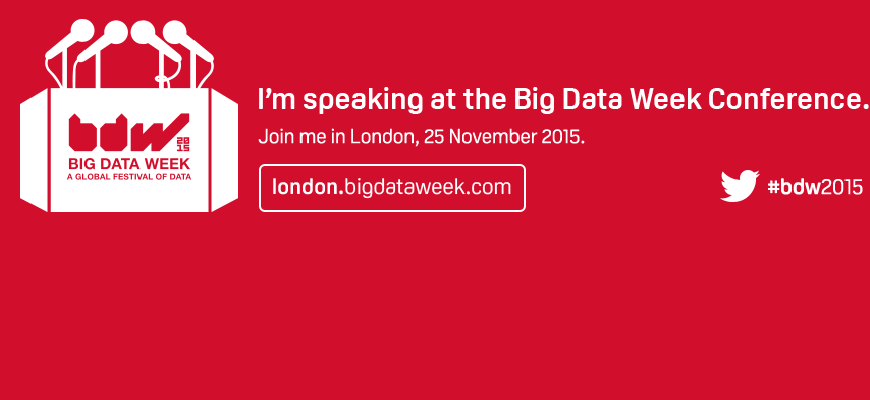Interview with ABIGAIL LEBRECHT Principal Analyst / uSwitch
This blog post is part of Big Data Week interview series.
Enjoy Abigail’s thoughts on Big Data.
While Big Data is already a buzz term, what does it actually mean for you? (an old question with a fresh answer)
Big Data has revolutionised my data analysis because sampling data has been happily relegated to the history books as we can computationally cope with increasingly enormous data sets. Interestingly, sampling theory is as relevant as ever, as natural bias can occur even in the biggest of big datasets and understanding how to ensure unbiased data is more important than ever now.
2. Is it important to be more data driven nowadays? If yes, why ( please use examples from your industry or your own case)?
I would much prefer if the question did not involve the word ‘nowadays’, being more data driven has always been an advantage, even when data was tiny. But today it is fundamental, not only to be more data driven, but to think carefully about the structure of your data and the uncertainties and causalities behind your data to ensure the ‘data’ that is fueling your decision making is not just noise or in some way misleading. An excellent example of this is the recent UK election in which too much credence was placed on the opinion polls without fully considering what they were measuring (blog post here: http://www.uswitch.com/tech/what-can-data-scientists-learn-from-the-election-polling-disaster/)
3. What are the main challenges a company encounters when starting to look at their data?
To be able to perform any data analysis, a process inevitably takes place of many iterations of asking questions and not managing to answer them, but at each stage realising what is missing in the data, what is structured wrong, what needs cleaning or labelling better. The questions get asked and asked again and only through asking and investigating what you need can the data start to represent what is required for a company’s analytics and finally you are able to answer the original questions and many more you didn’t know you had until you started studying the data.
4. How do you see the impact of Big Data in the marketing domain?
The ability to store, measure and quantify the impact of a business area which is both disparate and wide-reaching has the potential to revolutionise how we approach marketing, but also if done badly, it can lead to very bad decision making as bad decisions are dressed up as ‘data-driven’ when they are sometimes based on biased data or results which are not statistically significant. The importance of all business people having a strong understanding of the basics of probability and statistics and the dangers of ‘rogue’ analytics are absolutely fundamental before making decisions based on Big Data.
5. Do we still need data scientists with all the tools existing today for data cleaning, analysis, machine learning?
After talking a lot in these answers about biased data, I would feel dishonest to say yes without stating that I am a little biased on this question. But I strongly believe from my experience that a Data Scientist is a creative role, not just a highly-skilled number-cruncher. We help translate wider business questions into the component parts that can be answered by the reporting and analysis tools. We frame the questions, solve the problems, think out of the box and join up data sources that the business had not considered looking at. At least for the next few years, Data Scientists, will continue to be quite useful in the Big Data-sphere.
6. Who should come and listen your talk in Big Data Week?
Anyone with an interest in marketing, anyone who has struggled with the multi-touch attribution problem and the marketing mix, or anyone who has a solution to the problem – I’d love to hear it!
Anyone who is interested in discussing the dangers of bad statistics, correlation and causation mix ups and biased data and how it can lead to bad data-driven decision making. And anyone who wants to talk about rigourous statistical methods to ensure this doesn’t happen (all in 15 minutes….)
BIO:
Abigail is Principal Anal yst at uSwitch. She has a background in probability and statistics and a PhD in Queueing Theory from Imperial College London. At uSwitch, she has focused on using statistical and machine learning techniques for descriptive analytics and modelling and understanding customer behaviour. Abigail is passionate about encouraging an understanding of uncertainty in both big and small data.
yst at uSwitch. She has a background in probability and statistics and a PhD in Queueing Theory from Imperial College London. At uSwitch, she has focused on using statistical and machine learning techniques for descriptive analytics and modelling and understanding customer behaviour. Abigail is passionate about encouraging an understanding of uncertainty in both big and small data.


